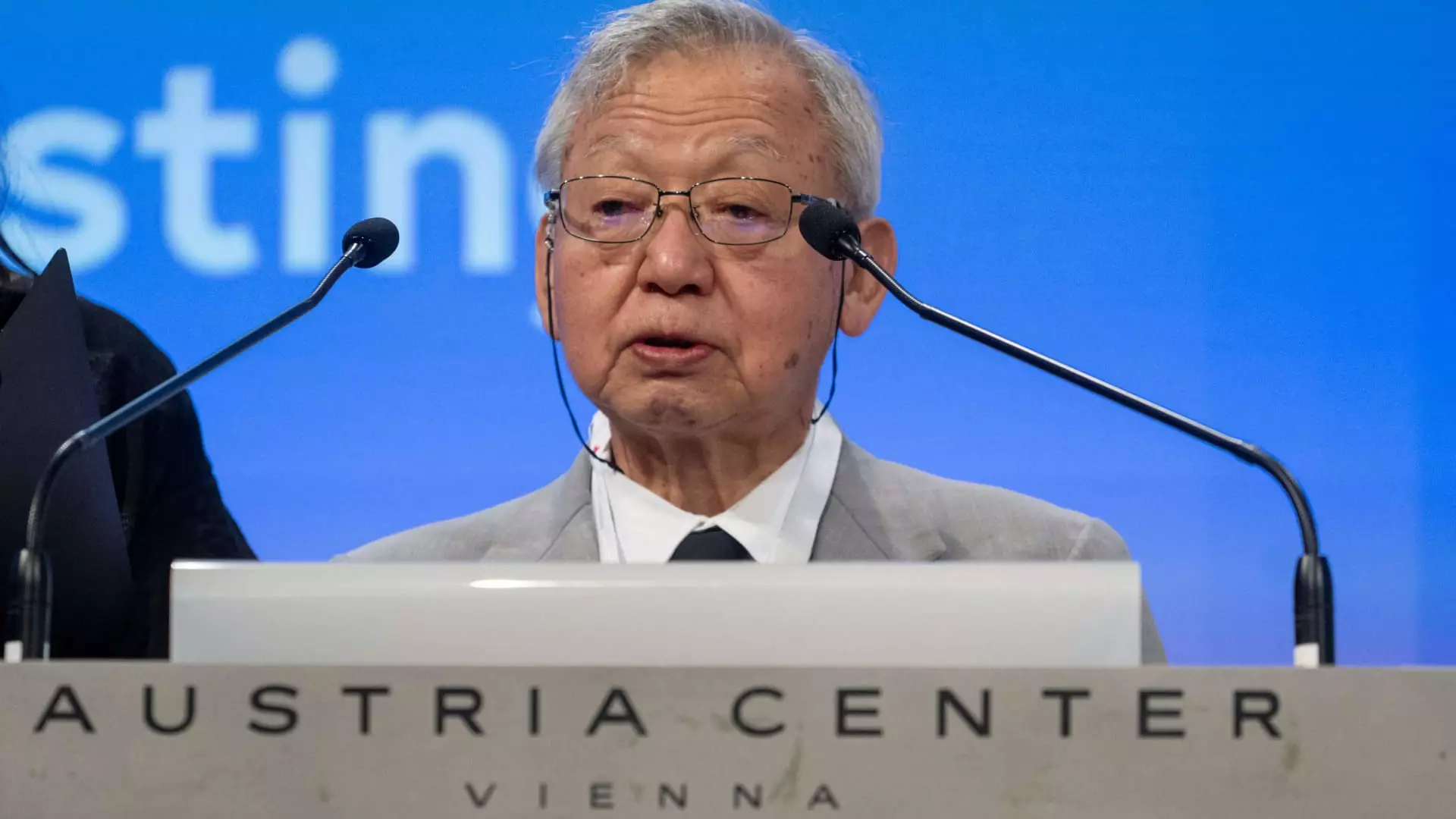The announcement that Nihon Hidankyo, the organization representing survivors of the atomic bombings in Hiroshima and Nagasaki, has been awarded the Nobel Peace Prize marks a significant milestone in the global fight against nuclear proliferation. Established in 1956 as a direct response to the horrific events of August 1945, Nihon Hidankyo has dedicated itself to raising awareness about the immense humanitarian crises resulting from nuclear warfare. The Norwegian Nobel Committee celebrated their relentless advocacy and recognition of the devastating consequences of nuclear weapons, framing the organization’s endeavors as pivotal in the creation of what has come to be regarded as the “nuclear taboo.”
The concept of the nuclear taboo refers to the growing international consensus that nuclear weapons should never be used. Over the years, as witnessed through the testimonies of Hibakusha—survivors of the atomic bombings—the narrative surrounding nuclear arms has shifted dramatically. The committee pointed out that although there has been a remarkable period of nearly eight decades without the use of nuclear weapons in armed conflict, this accepted norm is now facing unprecedented challenges. The voices of those who suffered directly from nuclear warfare are crucial in reinforcing the moral arguments against such devastating weaponry, making Nihon Hidankyo’s work vital in the ongoing dialogue surrounding disarmament.
While the Nobel Committee heralded the absence of nuclear warfare in recent history, they issued a clarion call regarding current international tensions. As geopolitical stakes escalate, many nations are reconsidering their nuclear postures, leading to a resurgence of rhetoric that threatens to dismantle decades of advocacy for disarmament. The urgency of this situation cannot be overstated; the reality that the esteemed taboo on nuclear weapons may be eroding is an alarming prospect. Nihon Hidankyo’s recognition by the Nobel Committee shines a light on these pressing issues, urging the global community to reflect on the catastrophic implications of any potential use of nuclear arms.
The Nobel Peace Prize has historically been awarded to those who advocate for critical social change. The recent recognition of Iranian human rights activist Narges Mohammadi alongside Nihon Hidankyo emphasizes a broader commitment to combatting oppression and promoting universal human rights. Mohammadi, who has been instrumental in advocating for the rights of women and the promotion of human dignity in Iran, was also met with serious repercussions for her activism. This recurring theme of resilience against formidable powers reinforces the necessity of international solidarity in the fight for peace and justice.
As the world reflects on this significant awarding of the Nobel Peace Prize, there lies an opportune moment for renewed commitment to the ideals of disarmament and global engagement for peace. Nihon Hidankyo’s journey illustrates not only the power of survivor narratives but also the strength of grassroots movements in shaping public policy and international norms. As the December 10 ceremony in Oslo approaches, it is crucial that all nations reconsider their attitudes towards nuclear armament and align themselves with the voices of those who have endured the catastrophic human toll of nuclear warfare. The path to a world devoid of nuclear threats lies within our collective will to uphold peace, promote dialogue, and champion justice.


Leave a Reply